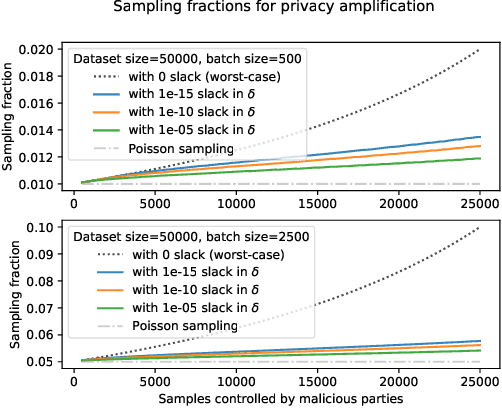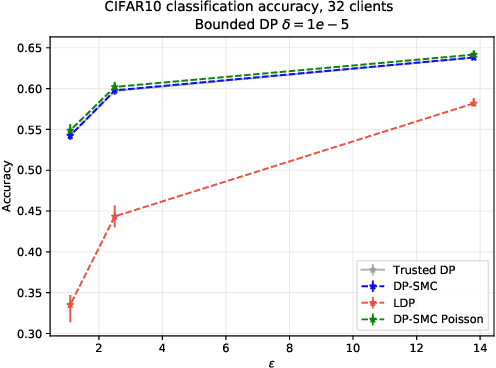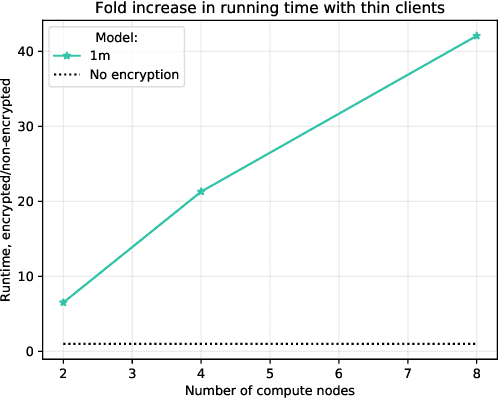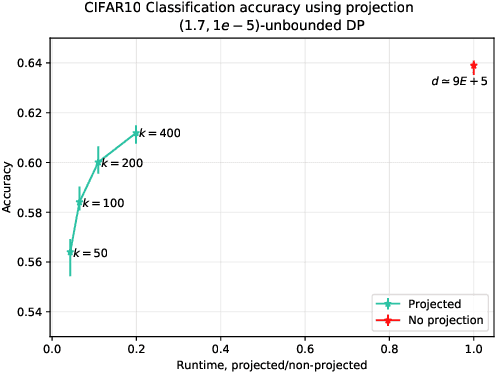Differentially private cross-silo federated learning
Paper and Code
Jul 10, 2020



Strict privacy is of paramount importance in distributed machine learning. Federated learning, with the main idea of communicating only what is needed for learning, has been recently introduced as a general approach for distributed learning to enhance learning and improve security. However, federated learning by itself does not guarantee any privacy for data subjects. To quantify and control how much privacy is compromised in the worst-case, we can use differential privacy. In this paper we combine additively homomorphic secure summation protocols with differential privacy in the so-called cross-silo federated learning setting. The goal is to learn complex models like neural networks while guaranteeing strict privacy for the individual data subjects. We demonstrate that our proposed solutions give prediction accuracy that is comparable to the non-distributed setting, and are fast enough to enable learning models with millions of parameters in a reasonable time. To enable learning under strict privacy guarantees that need privacy amplification by subsampling, we present a general algorithm for oblivious distributed subsampling. However, we also argue that when malicious parties are present, a simple approach using distributed Poisson subsampling gives better privacy. Finally, we show that by leveraging random projections we can further scale-up our approach to larger models while suffering only a modest performance loss.
 Add to Chrome
Add to Chrome Add to Firefox
Add to Firefox Add to Edge
Add to Edge